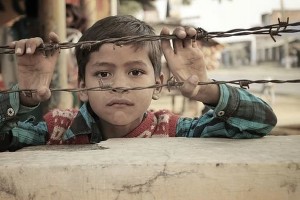“The real indication that those images really touch something in the human soul will be if Palestinians and their allies find those photos stirring or heartbreaking enough to serve their disinformation purposes.”
 Kabul, May 13 – A photojournalist who focuses on documenting the lives and struggles of everyday people living amid the destruction and hazards of a war-torn country under Islamist rule in South Asia voiced his aspiration today that someday the images he records will capture enough emotional power and attract enough attention that Palestinian activists will appropriate those images and label them as depicting Palestinian life under Israeli “occupation.”
Kabul, May 13 – A photojournalist who focuses on documenting the lives and struggles of everyday people living amid the destruction and hazards of a war-torn country under Islamist rule in South Asia voiced his aspiration today that someday the images he records will capture enough emotional power and attract enough attention that Palestinian activists will appropriate those images and label them as depicting Palestinian life under Israeli “occupation.”
Mahmoud Kazani, a photographer who has worked for National Geographic, Agence France-Presse, Reuters, the Associated Press, and several other international media outlets, admitted Wednesday that while he enjoys the professional recognition, the income, the sense of purpose, and the satisfaction of a job well done born of his work, he hopes that some day in the not-too-distant future, his photographs will be deemed wrenching enough to be taken out of context and captioned with “Gaza” to generate sympathy for Palestinians and antipathy for Israel.
“I’ll know I’ve officially made it as a photojournalist when the ‘Free Gaza’ slacktivists repurpose my photos for their propaganda,” he disclosed in an interview. “Here in Afghanistan, where I’ve done the bulk of my work for the last eight years, I’ve encountered some of the most heart-rending images, and succeeded in capturing them on camera. Those images have helped outsiders gain some understanding of, and I hope some empathy for, the ordinary people fighting just to sustain themselves and nurture their families, even as the Kabul government and its Western allies continue to face violent opposition from Taliban and other Islamist elements. I’ve photographed children sheltering in ruins or under carts from inclement weather; I’ve captured images of leathery-skinned old people waiting for handouts of international food aid. But the real indication that those images really touch something in the human soul will be if Palestinians and their allies find those photos stirring or heartbreaking enough to serve their disinformation purposes.”
Kazani spoke of several colleagues in photojournalism whose work has earned Palestinian appropriation. “You can have your Pulitzer Prize,” he chuckled. “I want to be like my friend from AP who took a picture of a half-destroyed mosque somewhere in Africa, a picture that was later captioned as coming from Gaza after Israeli airstrikes. Or the one from a Syrian hospital showing children whose legs had to be amputated because of a shrapnel wounds, and which soon reemerged as ‘this is the result of Israel’s use of white phosphorus does to the children of Gaza.’ I want my work to reach that level.”
Please support our work through Patreon.




